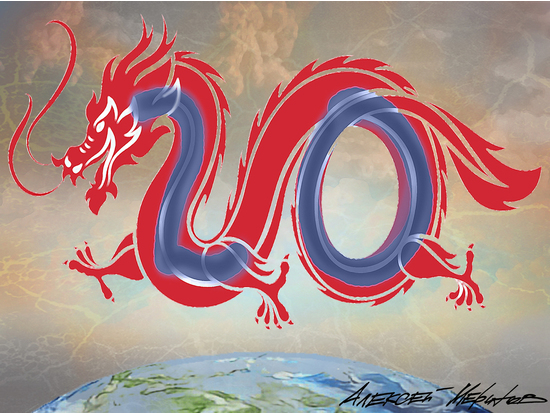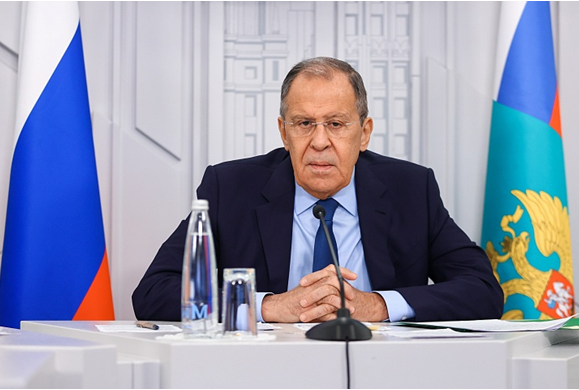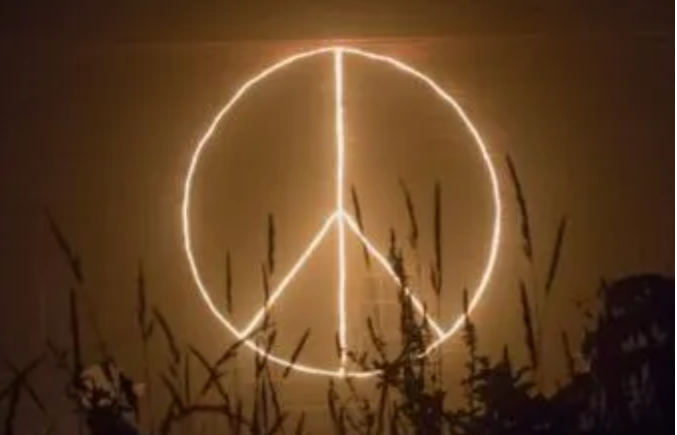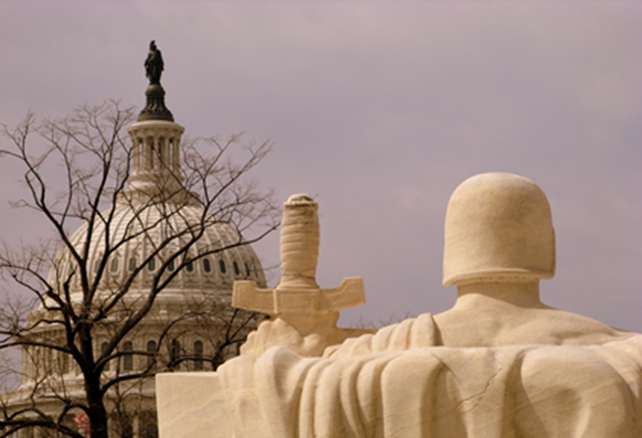By YURY TAVROVSKY | Like the UN, G7 and other global organizations, the G20 seems to acquire clear symptoms of dysfunction as well. G20 has started to operate in its format after the G7 meeting had failed to cope with the financial crisis in 2008. There was hope that with the involvement of China, India and other major world players, the shares of the global economy would go up again. But the annual decisions of the 20 world leaders have turned-out as vague and inconsistent as those of the G7 summits before.
The uselessness of a new geopolitical community was proven during the global crisis in the wake of the CoV pandemic. Nobody noticed the 2021 summit in Rome, which was missing a good half of all G20 leaders: Beautiful resolutions on fighting the infection and helping the “third world” were adopted nevertheless. But no one was going to fulfil those pledges, thus the fate of the poor and their countries has corresponded to the saying “Everyone dies alone.”
Not surprisingly, the current summit on the Indonesian island of Bali did not arouse increased enthusiasm among the its 20-member states. President Putin did not become distracted from current important matters and did not show up. Chairman Xi Jinping thought for a long time, but nevertheless decided to go and demonstrate to his colleagues of the “big political league” his new political weight after the 20th Communist Party Congress. The personal invitation of Indonesian President Joko Widodo, who came to Beijing for that purpose, worked in favour of the trip. Chinese colleagues presented another more playful version: Xi Jinping’s wife, the beautiful Peng Liyuan, might have longed for a world-class social event, in line to present her unique “Liyuan style” outfits that combine Western styles with elements of traditional Chinese costumes.
I think the real reason might differ: Sino-American relations were dangerously close to the precipice of military conflict, thus it became necessary to discuss the situation face to face. Arranging a special meeting was difficult for various internal and external reasons. But a meeting “at the side-lines” of G20 looked just perfect.
The talks between the heads of China and the United States took place the day before the start of the official program and lasted for more than 3 hours. Joe Biden spoke quite briefly about their content at a press conference. Xi Jinping decided not to meet with the press, but the Chinese version was covered by means of a detailed Xinhua news release.
Judging by its text, the “Chairman of the Celestial Empire” spoke at length and in detail about the decisions of the 20th Congress of the CPC, which approved the results of ten years of development under Xi`s leadership. Prospects for the movement up to 2035 were outlined as well. Subsequently, not without a jab against the American political system in place, the “high degree of continuity and stability” of the Chinese political system was emphasized. Taking a conciliatory tone, Xi Jinping stressed that “the expanse of the world is big enough” for China and the USA. Beijing does not want to interfere in US affairs, change the world order or take America’s place in the world. But harsher notes were exchanged during their discussions about the situation around Taiwan, which has escalated since 2018 with the beginning of the US Cold War against China. In his traditional figurative language, President Xi explained to President Biden that “the Taiwan issue lies at the core of China’s fundamental interests, the foundation of China-US relations.”
Biden had no choice but to repeat the mantra of good intentions towards Beijing: Washington does not want a “Cold War” with China, is not going to change the system in the Middle Kingdom, and does not intend to strengthen military-political alliances directed against China. The US does not support the idea of Taiwan`s independence. Notes of realism sounded in the words of Biden: “Rivalry between the United States and China is inevitable, but it should not slide into conflict.” The statement of the President of the United States were met with irony by the media and the expert community of China. “Whoever started the fight must end it,” the Global Times of Beijing wrote. Other publicists have highlighted the traditional incoherence of words and deeds by the American political establishment, comparing it to a chronic disease called “dysfunction”…
The meeting between Xi Jinping and Joseph Biden did not, and could not, improve Sino-American relations. China’s national interests dictate a course towards further strengthening its independence in world affairs. US national interests dictate attempts to eliminate all those who disagree with American hegemony. At best, their slide into conflict can be slowed down and put into a regulated framework.
Beijing has shown goodwill and, following the talks in Bali, is resuming contacts in areas blocked after Nancy Pelosi’s visit to Taiwan. Right on the side-lines of the summit, high-level talks on climate issues were held. No reciprocal concessions from the United States are yet to be seen, although it might be possible to expect the lifting of some trade sanctions or restrictions regarding the supply of chips. Perhaps Anthony Blinken will talk about these issues during his next trip to Beijing. Perhaps China`s generous advance is seen in Beijing as a gift to US President Biden. “Sleepy Joe” will turn 80 by November 20, and Xi and Biden travelled a lot together and jointly celebrated as well. In 2011, Vice President Xi Jinping accompanied Vice President Biden on a study tour in China. In the following year, Biden accompanied his colleague Xi Jinping on a similar tour through the US. They, in particular, visited a farmer in Iowa, who in 1985 received a young provincial leader under the State Department program, who has been no other than Xi Jinping by then.
Gifts remain gifts, but no progress was recorded on the main issues. The problem of Beijing’s rapprochement with Moscow was hardly touched upon. Hopes to separate the two Eurasian powers have faded with the bifurcation point having been passed by the intensification of the US-containment versus China’s trade, technological and military in parallel with the inciting of Ukraine against Russia. The Western and Eastern fronts of the global Cold War were clearly defined, and an inevitable interaction between them does exist.
At the G20 summit, Xi Jinping himself and his team were faithful regarding their “strategic partnership” with Moscow and they resisted against an attempted isolation and condemnation of Russia. In another global forum, at the UN and same time, China voted against a resolution on “reparations” supposed in favour of Ukraine due to the “invasion” by Russia. This was the first time that Beijing has abandoned its neutral position when discussing events in Ukraine and did not abstain from voting. Explaining this behaviour, the Chinese representative noted that the very concept of “invasion” as used by the West is meeting scepticism by the countries of the East, like China and India. The representative of the People’s Republic of China also stressed the unprecedented nature of the demand for compensation in UN practice. “If you follow this logic, then shouldn’t the United States be held accountable for the previous series of military actions that have caused damage to countries and peoples?”, he questioned.
In this connection the Chinese diplomat acknowledged the great importance of the issue of reparations and compensation: “Countries that have suffered the consequences of wrong doings such as colonialism, interventions, unilateral sanctions and economic blockades in the past are entitled to redress. The decisions of the UN General Assembly will help to find the right path in the future.”
By adopting a resolution on “reparations”, the West has opened a Pandora’s box. Now the countries of the South and East have been presented with a legitimate precedent for their demands from yesterday’s colonizers and current lovers of sanctions to compensate for their past losses and sufferings. China, for example, can recalculate at today’s rate previous indemnities paid to the British and French aggressors during the years of the two “Opium Wars” (1840-1842 and 1856-1860). The bill for U.S. trade sanctions since July 2018 could also become quite hefty.
While opposing the US for use of $300 billion of stolen Russian dollars to cover losses from the Ukrainian crisis, Beijing has probably been reminded about its trillion dollars in the accounts of the Federal Treasury and another two trillion in the banks of the US and other Western countries. American “stagecoach robbers” in turn might present bills for Tibet, Xinjiang, Taiwan, or invent any other far-fetched cases.
The G20 summit in Bali ended without sensationalism. It gave the leaders of the world powers an opportunity to meet “on the side-lines” in the wake of this geopolitical event. A steady rise of China’s prestige has been recorded. The summit confirmed the downward trend regarding the importance of the United States in world affairs and further the fall in “discipline” even among loyal US-vassals, who all “had queued” for an audience with the Chinese leader, Xi Jinping.
Translation from Russian by UNSER MITTELEUROPA







